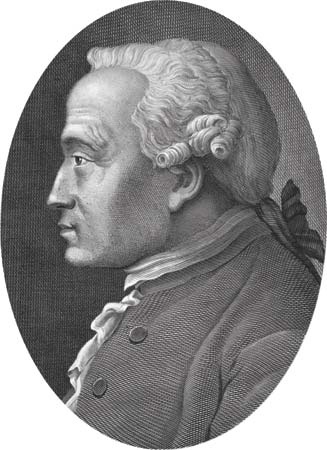deontological ethics
in philosophy, ethical theories that place special emphasis on the relationship between duty and the morality of human actions. Deontology (Greek deon, “duty,” and logos, “science”) consequently focuses on logic and ethics. No attempt is made in such theories to explicate specific moral obligations.
In deontological ethics an action is considered morally good because of some characteristic of the action itself, not because the product of the action is good. Deontological ethics holds that at least some acts are morally obligatory regardless of their consequences for human welfare. Descriptive of such ethics are such expressions as “Duty for duty's sake,” “Virtue is its own reward,” and “Let justice be done though the heavens fall.”
By contrast, teleological ethics holds that the basic standard of morality is precisely the value of what an action brings into being. Deontological theories have been termed formalistic because their central principle lies in the conformity of an action to some rule or law.
 The first great philosopher to define deontological principles was Immanuel Kant (Kant, Immanuel), the 18th-century German founder of critical philosophy, whose ethics were much influenced by Christianity as well as by the Rationalism of the Enlightenment. Kant held that nothing is good without qualification except a good will, which is one that wills to act in accord with the moral law and out of respect for that law, rather than out of natural inclinations. He saw the moral law as a categorical imperative—i.e., an unconditional command—and believed that its content could be established by human reason alone. Reason begins with the principle “Act only on that maxim whereby thou canst at the same time will that it should become a universal law.” Kant's critics, however, have questioned his view that all duties can be derived from this purely formal principle and have argued that, in his preoccupation with rational consistency, he neglected the concrete content of moral obligation.
The first great philosopher to define deontological principles was Immanuel Kant (Kant, Immanuel), the 18th-century German founder of critical philosophy, whose ethics were much influenced by Christianity as well as by the Rationalism of the Enlightenment. Kant held that nothing is good without qualification except a good will, which is one that wills to act in accord with the moral law and out of respect for that law, rather than out of natural inclinations. He saw the moral law as a categorical imperative—i.e., an unconditional command—and believed that its content could be established by human reason alone. Reason begins with the principle “Act only on that maxim whereby thou canst at the same time will that it should become a universal law.” Kant's critics, however, have questioned his view that all duties can be derived from this purely formal principle and have argued that, in his preoccupation with rational consistency, he neglected the concrete content of moral obligation.This objection was faced in the 20th century by the British philosopher W.D. Ross (Ross, Sir David), who held that numerous “prima facie duties,” rather than a single formal principle for deriving them, are themselves immediately self-evident. Ross distinguished these prima facie duties (such as promise keeping, reparation, gratitude, and justice) from actual duties, for “any possible act has many sides to it which are relevant to its rightness or wrongness”; and these facets have to be weighed before “forming a judgment on the totality of its nature” as an actual obligation in the given circumstances.
- Bernard de Clairvaux, Saint
- Bernard De Cluny
- Bernard de Jussieu
- Bernard de Mandeville
- Bernard de Menthon, Saint
- Bernard de Montfaucon
- Bernard de Ventadour
- Bernard De Voto
- Bernard Forest de Belidor
- Bernard Gilpin
- Bernard Haitink
- Bernardim Ribeiro
- Bernardin de Saint-Pierre, Jacques-Henri
- Bernardine of Siena, Saint
- Bernardino Luini
- Bernardino Luís Machado
- Bernardino Ochino
- Bernardino Ramazzini
- Bernardino Rivadavia
- Bernardino Telesio
- Bernard, Jean-Jacques
- Bernard, Jessie
- Bernard J. Wefers, Sr.
- Bernard Kops
- Bernard Law Montgomery, 1st Viscount Montgomery